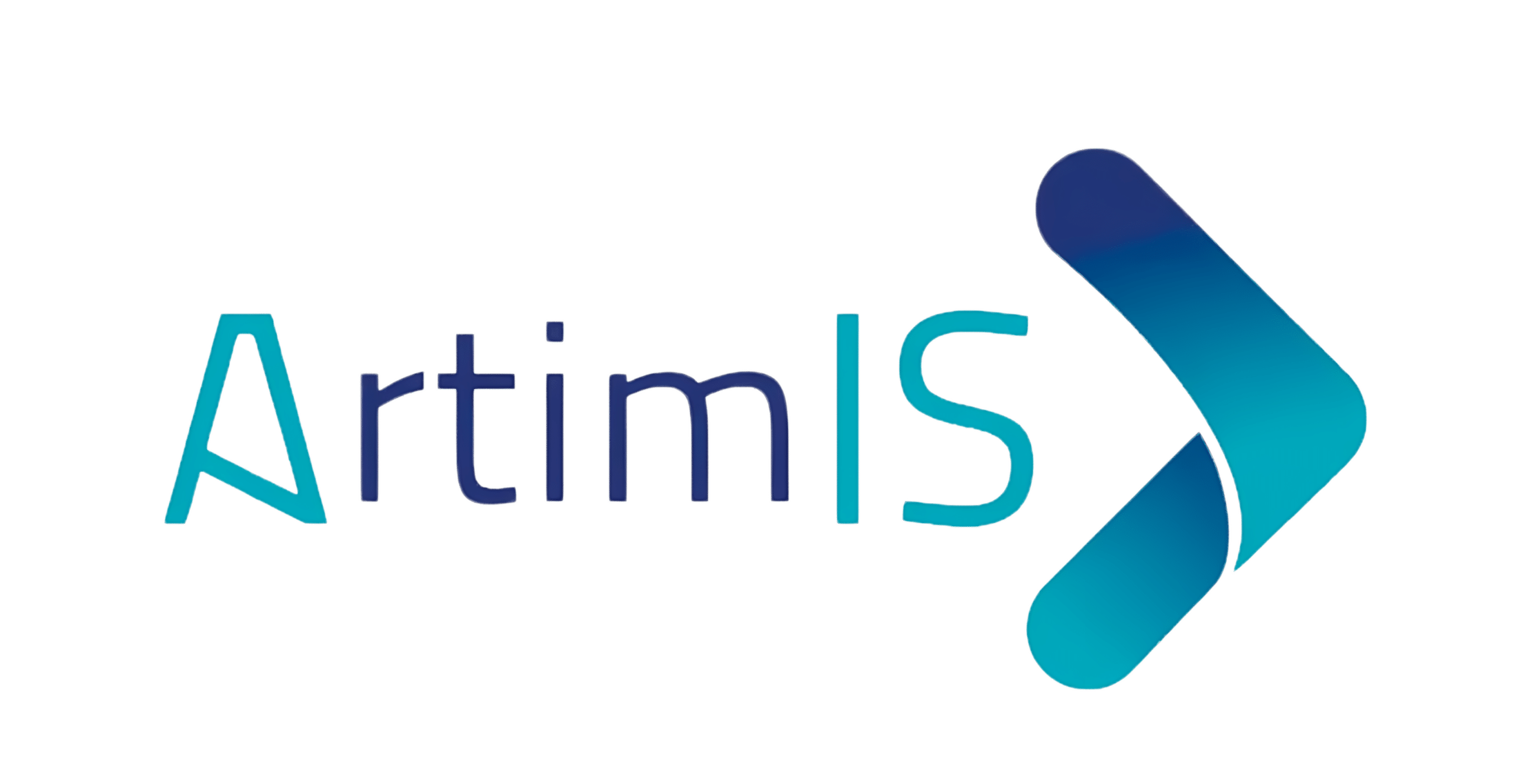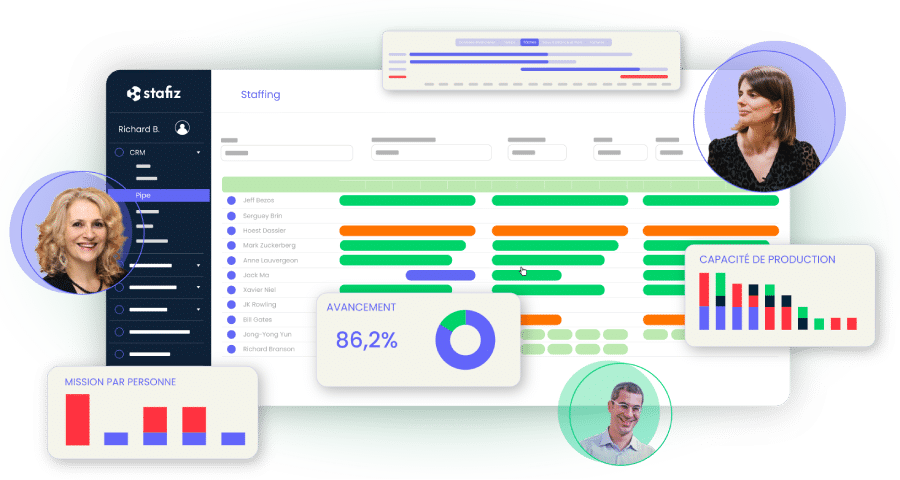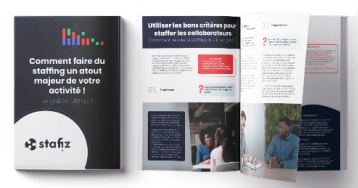Comment travailler avec un indépendant ?
Interview
Comment travailler avec un indépendant ?
Votre entreprise a des besoins particuliers et vous n’avez pas ces expertises en interne ? Il est temps de travailler avec des indépendants ! Que vous soyez une start-up, une PME ou une large organisation, faire appel à des freelances reste toujours une possibilité et présente beaucoup d’avantages.
1. Pourquoi choisir un indépendant ?
Les indépendants sont des professionnels qui ont décidé de se lancer en solo, ils ne sont pas friands des organisations hiérarchiques en entreprise et du travail en équipe. Ils travaillent seuls et selon leur timing et tarif pour des missions à durée limitée. Ce qui est souvent plus rentable pour votre entreprise.
Le souci réel est de trouver le bon ! Le freelance qui sera compatible avec vos besoins. Demandez-vous quels sont réellement vos besoins et si vous n’avez pas la possibilité de réaliser ce projet en interne. Si ce n’est pas le cas, évaluez le budget que vous comptez utiliser pour l’accomplissement de cette mission et renseignez-vous sur ce qui est plus rentable pour votre entreprise : engager quelqu’un en CDD /CDI ou faire appel à un freelance ? Nombre de sociétés trouvent de nombreux avantages à opter pour la deuxième solution !
Aujourd’hui, il y a de plus en plus d’indépendants sur le marché et faire un choix reste un défi. Vous commencerez sûrement par comparer le prix des prestations et cela vous permettra de faire un premier tri, il en est de même concernant la localisation des prestataires. Si vous avez besoin de quelqu’un pour travailler avec vous dans vos locaux ou sur site, le choix se fera de manière moins large que si vous faites appel à quelqu’un qui peut travailler à distance et vous fournir les différents livrables numériquement.
Au cours du travail de recherche, il faut se poser les bonnes questions afin de transmettre les bonnes informations concernant la mission :
- Quelles compétences sont recherchées ?
- Quelles expériences ?
- Ce qui est attendu du freelance
- Quel livrable ?
- Dates et durée
Une fois votre choix fait, c’est-à-dire : après avoir sélectionné un peu moins d’une dizaine de freelances ; il est impératif d’avoir un brief clair que vous aurez déterminé avec vos collaborateurs, ou supérieurs. Celui-ci est d’une grande valeur et dirige la suite du projet dans la direction que vous aurez choisi. Un brief peu clair, dans lequel il manque des éléments cruciaux, peut ralentir la mission, voire la mener à une forme d’échec. Si les livrables ne vous correspondent pas, remettez en question vos premières instructions, celles fournies dans le brief.
Comment commencer à travailler avec votre indépendant avant le début de sa mission ?
Définissez un cahier des charges complet ou une lettre de mission. Celle-ci doit contenir ces éléments essentiels :
- Pourquoi ce projet : expliquez vos besoins, votre vision et donnez en quelques mots les objectifs de la mission
- Qui vous êtes : expliquez ce que fait votre entreprise quelles sont ses valeurs
- Donnez une petite idée de la composition de l’équipe, des autres parties prenantes, du fonctionnement de l’entreprise
- Les étapes du projet : donnez en grandes lignes le planning et les objectifs pour chaque étape
- Les livrables et ce que vous attendez
- Les conditions de travail : l’environnement, le matériel disponible, si c’est à distance ou dans vos locaux, etc.
Recruter un freelance présente plusieurs avantages. Selon manager-go.com les principaux sont ceux-ci :
- Eviter la rigidité d’un CDD
- Recourir à des compétences expertes : les indépendants travaillent mieux et plus vite et vous coûteront moins cher qu’un salarié
- Elargir votre réseau
- Disponibilité immédiate
- Recruter autant de personnes que vous voulez si vous n’êtes pas satisfait
Concernant les limites, celles-ci ne sont pas nombreuses :
- Il existe des risques liés à la confidentialité : en effet, rien de vous garantit que certaines de vos informations ne sont pas partagées à d’autres clients de votre freelance, des clients qui peuvent être vos concurrents.
- Rien ne vous assure non plus qu’un indépendant soit réellement un expert dans son domaine. En passant par des agences, les risques diminuent.
- Enfin, avoir un indépendant doué dans ce qu’il fait et qui vous convient parfaitement est difficile à trouver.
Quelles sont les caractéristiques des indépendants ?
Comme son nom l’indique, ils travaillent en solo. Mais ce qui caractérise le plus ces travailleurs qui volent de leurs propres ailes, est leur passion pour ce qu’ils font. Ils sont autonomes et ont acquis une certaine expérience au cours des années qui leur permet de travailler indépendamment.
Généralement, ils expriment ce besoin de travailler en liberté, sans les restrictions que peuvent instaurer les entreprises et le travail d’équipe.
Les indépendants ont aussi des idées et des opinions à défendre, une vision claire de ce qu’ils veulent accomplir. Leur détermination fait d’eux des personnes très talentueuses mais également des individus difficiles à intégrer au sein d’une équipe qui a l’habitude de collaborer et de partager des idées pour arriver à des consensus.
Ces profils d’autoentrepreneurs font preuve d’une grande rigueur et démontrent une facilité à s’adapter à différents types de missions pour des entreprises très différentes parfois. Leur écoute active et leur désir de viser l’excellence font d’eux des individus fiables.
2. Utiliser un outil de staffing pour assigner les indépendants sur des missions et des tâches
Un outil de staffing présente de nombreux avantages pour votre entreprise. Lorsque vous êtes en charge d’un projet, faire un staffing est indispensable pour améliorer le processus de déroulement du projet en assignant chaquz ressources là où elle est nécessaire. Un outil vous permet de faire cela encore plus efficacement grâce à la visibilité qu’il offre sur les différentes ressources et leurs disponibilités, leur charge de travail, leur temps et autres éléments utiles au bon fonctionnement de votre gestion de projet.
Lisez cet article sur la gestion du staffing et ses bénéfices
Lorsque vous travaillez avec des indépendants, vous pouvez les inclure dans votre gestion du staffing. Et comme vous le faites pour chaque projet, listez les autres ressources dont vous avez besoin, que ce soit matériel ou humain. Ensuite faites votre planning et estimez les coûts, puis commencez à allouer vos ressources sur les différentes tâches, votre travailleur indépendant inclut.
En utilisant un outil de staffing, vous bénéficiez d’une visibilité sur les compétences de vos collaborateurs, sur leur performance et sur l’avancement du projet en temps réel. Chacun a la possibilité de rentrer ses données et cela permet de créer une meilleure collaboration et connectivité dans l’entreprise et dans les équipes qui travaillent sur un projet.
Le travail à distance ayant renforcé ce besoin de communication, l’outil de gestion du staffing est un moyen de centraliser les données et les échanges. Ce que beaucoup recherchent aujourd’hui sont des outils facilitant l’adaptation au travail à distance, les bouleversements de ces deux dernières années ont fait ressortir certaines faiblesses chez certaines entreprises. C’est pourquoi, utiliser un logiciel tel Stafiz pour gérer vos équipes et vos projets en plus de votre gestion administrative est indispensable pour une meilleure productivité, et réactivité de la part de vos collaborateurs et travailleurs indépendants – qui se sentiront plus impliqués dans l’entreprise.
Chaque personne, une fois staffée sur une tâche, peut organiser son emploi du temps à sa manière et faire rapport de ses avancements, difficultés et de sa performance dans l’outil de staffing. Ceci permettant un meilleur suivi général dans une période où planifier, rendre compte et échanger en équipe devient compliqué.
Lisez cet article pour plus d’infos sur comment utiliser un outil de staffing
3. Intégrer les indépendants à l’entreprise et à l’équipe
Les freelances, malgré le fait qu’ils travaillent selon leur propre planning et (leurs propres règles), sont plus efficaces lorsqu’ils sont bien intégrés à l’équipe, et dans l’entreprise. Voici quelques erreurs à éviter lorsque vous travaillez avec un freelance selon un article de Crème de la crème, plateforme de freelances :
- Mal communiquer avant, pendant et à la fin du projet : ceci est encore plus important lorsqu’ils travaillent à distance. N’oubliez pas de communiquer toutes les informations nécessaires au bon avancement de sa mission. (changement de planning, matériel manquant etc)
- Manque d’intégration
- Soucis administratifs et retards de paiement
- Manquer de prendre le temps de faire connaissance et de comprendre sa manière de travailler
L’objectif est de construire avec lui une relation de confiance, une relation durable afin de pouvoir peut-être travailler de nouveau ensemble à l’avenir.
L’importance de rester flexible et de s’adapter :
Utiliser des outils qui permettent de travailler correctement à distance par exemple, de manière à pouvoir échanger rapidement, partager des documents, etc.
Donner accès au freelance à un maximum d’information, la visibilité qu’il obtiendra lui permettra d’être plus efficace dans ses tâches et de se sentir plus impliqué dans votre entreprise.
Voici 4 conseils pour réellement travailler en bonne collaboration avec vos indépendants :
Comme vous avez l’habitude de faire avec des salariés de l’entreprise, agissez comme vous le feriez avec eux :
- Exprimez votre satisfaction
- Rappelez les rôles de chacun et définissez certaines règles
- Soyez disponibles, à l’écoute
- Rendez l’échange possible
L’expérience d’un indépendant chez Stafiz
Interview avec Cyril Coulange

“Depuis combien de temps avez-vous commencé cette carrière en tant qu’indépendant ?
Cela s’est fait en plusieurs étapes. La première a été de monter la structure juridique il y a plus d’un an. Puis j’ai dû définir mon offre. Je savais que je voulais être indépendant, mais après avoir fait une dizaine d’année en conseil et en finance j’étais capable de faire pas mal de choses et j’avais une offre assez large. Il fallait vraiment que je définisse ce que je voulais offrir et le meilleur moyen de pénétrer le marché pour obtenir des clients rapidement.
Cela m’a pris un peu de temps. J’ai commencé mon site internet, je faisais aussi quelques missions par-ci par-là sans que ce soit très ciblé et sans faire de démarchage.
J’ai commencé à définir mon offre en septembre 2020 en faisant mon site. Je me suis dit que c’était une bonne vitrine. J’ai mis mon offre en production en octobre 2020, et depuis je démarche activement sur celle-ci. Techniquement il y en trois, d’une part l’automatisation de clôture et la mise en place d’outils de reporting. D’une autre, le conseil financier et stratégique eu sens un peu plus large pour l’accompagnement dans le cadre de fusion et acquisition etc. Enfin, j’ai une offre de DAF à temps partiel, qui est celle que je vends le plus. J’interviens chez des clients pour m’occuper de toute la fonction financière.
Quels types de clients avez-vous ?
J’ai un cœur de clientèle, mais cela reste très large. Cela va de la très jeune entreprise – comme des clients qui n’ont pas encore de statut juridique – à des cabinets de conseils qui font des dizaines de millions d’euros de chiffre d’affaires. Mon cœur de clientèle sont plutôt des startups qui ont entre deux et quatre ans d’activité, qui ont un chiffre d’affaires qui tourne autour de 1 et 5 millions d’euros, qui ont des besoins de reporting comme du prévisionnel pour pouvoir prendre des décisions stratégiques ; soit parce qu’ils ont des investisseurs qui ont besoin de reporting régulier sur leurs investissements.
Qu’est-ce qu’un indépendant peut apporter de plus à une entreprise ou à un projet ?
En finance par exemple : Les dirigeants font eux-mêmes toute la partie financière, ils sont tout à fait capables de le faire mais c’est chronophage, cela leur prend beaucoup de temps. C’est du temps qu’ils ne peuvent pas passer sur leur activité. L’intérêt de passer par un prestataire est qu’il peut prendre en charge toute cette partie-là et délaisser de ce poids le dirigeant qui va pouvoir se concentrer sur l’activité opérationnelle et déléguer.
L’intérêt pour l’entreprise est qu’il s’agit d’un statut très souple. S’il y a une très forte demande, ou besoin de prestation, elle va pouvoir prendre son prestataire « sur mesure ». S’il y a des mois où il y a moins de besoins, l’entreprise ne fait pas appel à lui tout simplement. Le prestataire s’adapte en fonction de l’activité de son client et en fonction du budget.
Cela coûte cher à une entreprise aujourd’hui de recruter quelqu’un, et ce n’est pas très souple si cela ne se passe pas bien. Avec un indépendant, nous pouvons suivre le budget de très près et décider ou non de faire appel à ses services.
Cela peut arriver que ça ne se passe pas bien entre un prestataire et une entreprise, auquel cas c’est très facile de mettre fin à un contrat.
Est-ce plus rentable de se tourner vers un indépendant, ou de recruter quelqu’un ?
Cela dépend beaucoup du profil. Sur la fonction financière, et à budget comparable, nous pouvons faire intervenir un indépendant avec un profil de 10 ans d’activité pour 2 à 3 jours par semaine dans une entreprise pour le même prix qu’un junior à plein temps avec seulement deux ans d’ancienneté. Le senior interviendra moins de jours, mais il sera plus efficace en 3 jours qu’un junior en une semaine.
Quelle a été votre meilleure expérience avec un client ? Ou votre mission préférée ?
Ma mission préférée est avec une entreprise qui a 4 ans d’existence et avec qui je travaille depuis plusieurs mois. Je travaille avec une équipe de sept personnes et c’est une entreprise qui est très active, qui se développe bien. Les dirigeants sont très sensés et avec la tête sur les épaules. C’est très intéressant car c’est un échange avec des personnes qui connaissent mon métier. Cela se passe très bien et nous avons beaucoup de choses à nous apporter réciproquement. On œuvre ensemble pour le bien de l’entreprise.
C’est sympathique par rapport à ce que je faisais avant en cabinet, c’était plus des missions ponctuelles qui allaient d’une semaine à quelques mois où on nouait des liens avec le client mais finalement, à la fin de la mission nous remettons un rapport puis nous ne revoyons jamais ce client.
En tant qu’indépendant, je peux créer de vraies relations et intervenir de manière récurrente, ce qui facilite la communication et l’intérêt pour la mission.
Parfois les clients ne savent pas à quoi s’attendre avant de travailler avec des indépendants. D’après vous et votre expérience, qu’est-ce que les clients devraient savoir avant de faire appel à vos services ? Quel conseil leur donnerez-vous pour qu’ils connaissent mieux votre métier, votre manière de travailler ?
Je ne sais pas exactement comment travaillent les indépendants de manière générale. J’ai eu la chance de travailler dans un cabinet de conseil pendant longtemps, et j’ai été formé aux procédures strictes du cabinet. La prestation que j’offre aujourd’hui est un cabinet, moins cher et plus souple car j’ai moins de clients que lorsque j’étais en cabinet. Je suis plus proche de mes clients, donc cela à un intérêt de passer par un prestataire qu’un cabinet de conseil. Après cela il faut faire un benchmark et comparer les différents prestataires qui peuvent intervenir sur le projet. Il faut regarder ceux qui sont les plus compétents pour mener à bien la mission.
En quoi choisir de travailler avec un indépendant plutôt que de recruter quelqu’un à plein temps peut garantir la réussite d’un projet ?
La souplesse, et le savoir-faire. Un indépendant connait bien son métier généralement car cela fait plusieurs années qu’il l’exerce. Il connaît bien les missions qu’on va lui proposer, alors qu’une recrue va avoir besoin d’être formée, car son niveau sera inférieur.
Pouvez-vous partager votre expérience en tant que prestataire sur une mission chez Stafiz ?
J’ai travaillé pour l’un de vos clients, sur l’onboarding de la solution Stafiz. Le client avait un problème de format de ses bases de données en Excel. Je vous ai accompagné pour remettre en forme tout cela et intégrer comme il se doit les données du client dans Stafiz. C’était du conseil informatique, je n’avais pas du tout d’input financier sur cette mission.
C’était en septembre/octobre l’année dernière et cela a été très intéressant. C’était durant la période où je définissais encore mon offre, c’est pourquoi cela a été très intéressant de travailler sur ces problématiques sur lesquelles je n’avais pas été confronté auparavant. J’ai beaucoup travaillé avec le client en face à face sans passer par Stafiz.
Vous n’avez donc pas été réellement intégré à l’équipe, vous avez seulement travaillé avec ce client de Stafiz ?
Exactement. J’étais plus prestataire du client que de Stafiz finalement.
Quel est votre ressenti général ? Êtes-vous bien intégré aux équipes ou travaillez-vous plus en solo ?
Cela dépend des clients, certains sont habitués à travailler avec des prestataires alors nous sommes bien intégrés et faisons partie de l’équipe. Nous avons même des adresses mail au nom de la société. Mais il y aussi des clients moins habitués à travailler avec des prestataires et avec qui je continue de travailler sous bannière de mon cabinet de conseil. En règle générale la communication passe très bien, nous avons la chance aujourd’hui d’avoir des outils qui nous permettent de communiquer en temps réel comme avec Slack et à Teams (cela dépend des équipes).
Je n’ai donc jamais eu de problème avec mes clients. Comme nous leur apportons une solution, c’est dans leur intérêt de bien communiquer et de nous fournir tous les documents dont nous avons besoin, et que l’on se sente à l’aise dans l’équipe. Comme le compteur tourne, c’est dans leur intérêt que cela se passe bien et vite. Nous œuvrons avec les clients pour le bien-être de l’entreprise.
Merci Cyril.”
Autre source : joptimisemonsite
D’autres articles pourraient vous intéresser

Optimisation de la Gestion de la Relation Client (GRC) avec Stafiz : le cas d’Artimis
Natalia Duarte...

